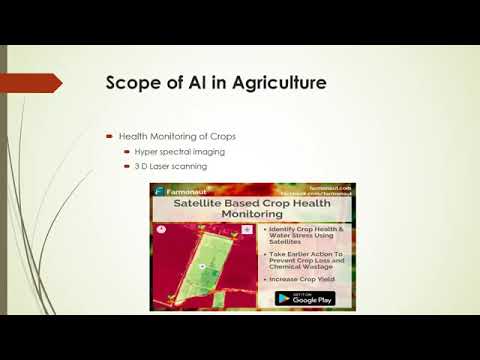Empowering Imperial County’s Agricultural Workforce: Sustainable Farming Practices and Technology for California’s Food Security

“Imperial County’s agricultural industry employs over 12,000 seasonal workers annually, contributing significantly to California’s $50 billion farm economy.”
In the heart of Southern California lies Imperial County, a region that plays a pivotal role in feeding not just the state, but the entire nation. As we delve into the intricate world of imperial county agriculture, we uncover a tapestry of dedication, innovation, and sustainable practices that are shaping the future of farming. From the sprawling fields of lettuce to the bustling el centro farming industry, we’ll explore how this region is at the forefront of agricultural innovation and workforce empowerment.
The Backbone of California’s Agricultural Economy
Imperial County’s agricultural sector is more than just a local economic driver; it’s a cornerstone of California’s agricultural economy. With its unique climate and fertile soil, this region has become a powerhouse in crop production, particularly during the winter months when much of the country is blanketed in snow.
- Over $2.6 billion in agricultural production in 2022
- Key commodities include cattle, alfalfa, lettuce, broccoli, spinach, onions, and carrots
- 14.5% of all jobs in the El Centro Metropolitan Statistical Area are farm-related
These statistics highlight the significance of agricultural jobs in California, particularly in Imperial County. The region’s contributions to the state’s economy are immeasurable, providing fresh produce year-round and ensuring food security for millions.
Seasonal Agricultural Employment: A Closer Look
Seasonal agricultural employment is the lifeblood of Imperial County’s farming industry. Each year, thousands of workers descend upon the region to participate in the planting, tending, and harvesting of crops. This influx of labor is crucial for maintaining the county’s agricultural output and meeting the demands of consumers across the nation.
In the 2022-23 season, Imperial County saw approximately 19,571 migrant and seasonal farm workers, a testament to the region’s reliance on this dedicated workforce. These workers form the backbone of the imperial valley crop production, ensuring that fresh produce reaches our tables efficiently and consistently.
The Farm Workers Appreciation Breakfast: A Tradition of Gratitude
One of the most heartwarming traditions in Imperial County is the annual Farm Workers Appreciation Breakfast. On December 6, 2023, this event celebrated its 44th year, honoring the tireless efforts of approximately 2,500 agricultural workers in Calexico. This pre-dawn gathering serves as a poignant reminder of the early mornings and long days that characterize farm work.
The breakfast, featuring traditional foods such as tamales, beans, salsa, sweet bread, and coffee, is more than just a meal. It’s a symbol of the community’s gratitude and recognition of the sacrifices made by California farm workers. This event exemplifies the spirit of migrant farm worker support that is essential for maintaining a strong and motivated agricultural workforce.
The Diversity of Imperial Valley Crop Production
The imperial valley crop production is a marvel of agricultural diversity. From leafy greens to root vegetables, the region’s farmers cultivate a wide array of crops that feed millions. Let’s take a closer look at some of the key commodities that define Imperial County’s agricultural landscape:
- Lettuce: A staple of salads across America, Imperial County’s lettuce production is a testament to the region’s perfect growing conditions.
- Broccoli: This nutritious vegetable thrives in the county’s cool winter months, providing a vital source of vitamins and minerals.
- Spinach: Another leafy green that benefits from the area’s climate, spinach production contributes significantly to the county’s agricultural output.
- Carrots: The rich soil of Imperial Valley yields sweet, crisp carrots that are shipped across the country.
- Onions: An essential ingredient in countless dishes, Imperial County’s onion crop is known for its quality and flavor.
This diverse crop portfolio not only ensures a steady supply of fresh produce but also helps to mitigate risks associated with monoculture farming. By cultivating a variety of crops, farmers in Imperial County contribute to both economic stability and ecological balance.

“The Imperial Valley produces approximately 80% of the nation’s winter vegetables, including lettuce, broccoli, and carrots.”
Sustainable Farming Practices in Imperial County
As we face the challenges of climate change and resource scarcity, the adoption of sustainable farming practices has become more critical than ever. Imperial County farmers are at the forefront of this agricultural revolution, implementing innovative techniques to conserve water, protect soil health, and reduce environmental impact.
Water Conservation Techniques
In a region where water is precious, efficient irrigation is paramount. Farmers in Imperial County are increasingly turning to advanced irrigation systems that minimize water waste:
- Drip irrigation for precise water delivery
- Soil moisture sensors to optimize watering schedules
- Laser leveling of fields to improve water distribution
These techniques not only conserve water but also contribute to healthier crops and reduced energy consumption.
Soil Health Management
Maintaining soil health is crucial for long-term agricultural sustainability. Imperial County farmers are adopting practices that protect and enhance their soil:
- Cover cropping to prevent erosion and improve soil structure
- Crop rotation to break pest cycles and enhance nutrient cycling
- Reduced tillage to preserve soil microorganisms and organic matter
By prioritizing soil health, farmers ensure the longevity of their land and the quality of their produce.
Agricultural Technology: The Future of Farming in Imperial County
The integration of technology in agriculture is transforming the way we farm, and Imperial County is no exception. From precision agriculture to data-driven decision-making, farmers are leveraging cutting-edge tools to enhance productivity and sustainability.
Satellite-Based Crop Monitoring
One of the most significant advancements in agricultural technology for lettuce farming and other crops is satellite-based monitoring. This technology allows farmers to:
- Track crop health in real-time
- Identify areas of stress or disease before they become visible to the naked eye
- Optimize resource allocation based on precise field data
Companies like Farmonaut are at the forefront of this revolution, offering affordable and accessible satellite-based farm management solutions. Through their  , farmers can access vital information about their crops from anywhere, at any time.
, farmers can access vital information about their crops from anywhere, at any time.
AI-Powered Advisory Systems
Artificial Intelligence is revolutionizing farm management by providing personalized recommendations based on vast amounts of data. These systems can:
- Predict optimal planting and harvesting times
- Suggest precise fertilizer and pesticide applications
- Forecast potential yield and market demands
Farmonaut’s Jeevn AI Advisory System is an example of how AI is being harnessed to empower farmers with data-driven insights, helping them make informed decisions that optimize crop yields and resource use.
Blockchain for Supply Chain Transparency
In an era where consumers are increasingly concerned about the origins of their food, blockchain technology is providing unprecedented transparency in the agricultural supply chain. This technology:
- Tracks produce from farm to table
- Ensures food safety and quality
- Builds consumer trust through verifiable data
By implementing blockchain-based traceability solutions, Imperial County farmers can differentiate their products in the market and build stronger relationships with consumers.
The Role of Migrant Farm Workers in California’s Agricultural Success
The success of California’s agricultural sector, particularly in regions like Imperial County, is inextricably linked to the contributions of migrant farm workers. These dedicated individuals play a crucial role in planting, maintaining, and harvesting the crops that feed the nation.
Challenges Faced by Migrant Farm Workers
Despite their essential role, migrant farm workers often face significant challenges:
- Seasonal nature of work leading to income instability
- Limited access to healthcare and social services
- Language barriers and cultural adaptation
- Physically demanding work conditions
Addressing these challenges is crucial for maintaining a stable and productive agricultural workforce in Imperial County and throughout California.
Initiatives Supporting Migrant Farm Workers
Recognizing the importance of migrant farm workers, various initiatives have been implemented to support this vital workforce:
- Educational programs for workers and their families
- Health clinics providing affordable care
- Housing assistance programs
- Legal aid services for labor rights and immigration issues
These support systems are essential for ensuring the well-being of farm workers and, by extension, the sustainability of the agricultural sector.
The Economic Impact of Imperial County’s Agriculture
The agricultural industry in Imperial County is not just about producing food; it’s a significant economic engine that drives prosperity throughout the region. Let’s examine the multifaceted economic impact of this vital sector:
Job Creation and Employment
Agriculture is a major employer in Imperial County, providing jobs across various skill levels:
- Field workers and harvesters
- Equipment operators and mechanics
- Farm managers and supervisors
- Agronomists and agricultural scientists
- Logistics and transportation workers
These jobs not only support individual workers and their families but also contribute to the overall economic health of the community.
Revenue Generation and Tax Contributions
The billions of dollars generated by Imperial County’s agricultural production translate into significant tax revenues that support local services and infrastructure. This includes:
- Property taxes from agricultural land
- Sales taxes from farm equipment and supplies
- Income taxes from agricultural businesses and workers
These tax contributions are vital for funding schools, roads, healthcare facilities, and other essential services in the county.
Multiplier Effect on Local Businesses
The impact of agriculture extends far beyond the farm gate. The industry supports a wide range of ancillary businesses, creating a multiplier effect throughout the local economy:
- Farm supply stores and equipment dealers
- Food processing and packaging facilities
- Transportation and logistics companies
- Restaurants and retail establishments serving farm workers and their families
This interconnected web of economic activity underscores the importance of a thriving agricultural sector for the overall prosperity of Imperial County.
The Future of Farming in Imperial County: Innovations and Challenges
As we look to the future, Imperial County’s agricultural sector faces both exciting opportunities and significant challenges. Addressing these issues will be crucial for ensuring the continued success and sustainability of farming in the region.
Emerging Technologies and Their Potential Impact
The integration of cutting-edge technologies promises to revolutionize farming practices in Imperial County:
- Drone technology for precise crop monitoring and targeted treatments
- Robotics and automation to address labor shortages and increase efficiency
- Gene editing techniques for developing more resilient and productive crop varieties
- Internet of Things (IoT) sensors for real-time monitoring of soil and crop conditions
These innovations have the potential to dramatically increase productivity while reducing resource use and environmental impact. Farmonaut’s suite of technologies, including their satellite-based monitoring and AI advisory systems, are at the forefront of this technological revolution in agriculture.
Farmers can access these innovative solutions through Farmonaut’s mobile apps:
Climate Change Adaptation and Mitigation
Climate change poses significant challenges to agriculture in Imperial County, including:
- Increased water scarcity and drought conditions
- More frequent extreme weather events
- Shifts in pest and disease patterns
- Changes in crop suitability and growing seasons
Adapting to these changes will require innovative approaches to water management, crop selection, and farming practices. Simultaneously, the agricultural sector must play a role in mitigating climate change through reduced emissions and increased carbon sequestration.
Workforce Development and Retention
Ensuring a skilled and stable agricultural workforce will be crucial for the future of farming in Imperial County. This includes:
- Investing in education and training programs for farm workers
- Improving working conditions and benefits to attract and retain workers
- Developing career pathways within the agricultural sector
- Addressing immigration policy issues to ensure a stable workforce
By focusing on workforce development, Imperial County can build a more resilient and productive agricultural sector that provides good jobs and supports local communities.
Farmonaut: Empowering Imperial County Farmers with Cutting-Edge Technology
In the realm of agricultural innovation, Farmonaut stands out as a pioneering force, offering advanced satellite-based farm management solutions that are particularly relevant to the unique needs of Imperial County farmers. Let’s explore how Farmonaut’s technology is revolutionizing farming practices in the region:
Real-Time Crop Health Monitoring
Farmonaut’s satellite imagery technology provides farmers with unprecedented insights into their crop health:
- NDVI (Normalized Difference Vegetation Index) mapping for assessing plant vigor
- Early detection of crop stress, disease, and pest infestations
- Temporal analysis to track crop development over time
This level of detail allows farmers to make timely interventions, optimizing crop yields and reducing losses.
AI-Powered Advisory System
The Jeevn AI Advisory System developed by Farmonaut offers personalized recommendations based on real-time data:
- Custom irrigation schedules based on crop type, soil moisture, and weather forecasts
- Fertilizer and pesticide application advice for optimal crop health
- Harvest timing recommendations to maximize quality and yield
By leveraging artificial intelligence, Farmonaut empowers farmers to make data-driven decisions that improve efficiency and sustainability.
Resource Management Tools
Efficient resource management is crucial in Imperial County’s agricultural landscape. Farmonaut provides tools to optimize the use of vital resources:
- Water usage tracking and optimization suggestions
- Fertilizer application monitoring to prevent over-fertilization
- Fleet management for efficient deployment of farm machinery
These tools not only help reduce costs but also contribute to more sustainable farming practices.
Accessibility and Ease of Use
One of Farmonaut’s key strengths is its commitment to making advanced agricultural technology accessible to farmers of all scales:
- User-friendly mobile and web applications
- Affordable subscription models tailored to farm size and needs
- Minimal hardware requirements, leveraging existing smartphones and computers
This accessibility ensures that even small and medium-sized farms in Imperial County can benefit from cutting-edge agricultural technology.
For developers and businesses looking to integrate Farmonaut’s technology into their own systems, the company offers a robust API:
By leveraging Farmonaut’s technology, Imperial County farmers are positioned to lead the way in sustainable, efficient, and productive agriculture, ensuring the region’s continued role as a vital contributor to California’s food security.
Imperial County Agricultural Workforce and Crop Production
| Agricultural Workforce | Crop Production | |||||
|---|---|---|---|---|---|---|
| Job Category | Estimated Workers | Average Wage | Crop | Estimated Acreage | Annual Yield | Economic Value |
| Field Workers | 15,000 | $14.50/hour | Lettuce | 40,000 acres | 800 million lbs | $400 million |
| Equipment Operators | 2,500 | $18.00/hour | Broccoli | 25,000 acres | 500 million lbs | $250 million |
| Supervisors | 1,000 | $22.00/hour | Spinach | 15,000 acres | 300 million lbs | $150 million |
| Agronomists | 500 | $30.00/hour | Carrots | 20,000 acres | 600 million lbs | $180 million |
Frequently Asked Questions
Q: What makes Imperial County’s agricultural industry unique?
A: Imperial County’s unique climate allows for year-round crop production, particularly during winter months when much of the country cannot grow fresh produce. The region is known for its diverse crop portfolio and significant contribution to California’s agricultural economy.
Q: How many seasonal agricultural workers does Imperial County employ?
A: Imperial County employs approximately 19,571 migrant and seasonal farm workers annually, playing a crucial role in the region’s agricultural production.
Q: What are the main crops produced in Imperial County?
A: The main crops include lettuce, broccoli, spinach, carrots, onions, and alfalfa. The county is also known for its cattle production.
Q: How is technology changing farming practices in Imperial County?
A: Advanced technologies like satellite-based crop monitoring, AI advisory systems, and precision agriculture tools are revolutionizing farming in the region. These innovations help farmers optimize resource use, improve crop yields, and enhance sustainability.
Q: What challenges does Imperial County’s agricultural sector face?
A: Key challenges include water scarcity, climate change impacts, labor shortages, and the need for continued innovation in sustainable farming practices.
Conclusion: A Sustainable Future for Imperial County Agriculture
As we’ve explored throughout this article, Imperial County’s agricultural sector stands at the forefront of innovation, sustainability, and economic importance. From the dedicated migrant farm workers who form the backbone of the workforce to the cutting-edge technologies revolutionizing farming practices, the region exemplifies the dynamic nature of modern agriculture.
The challenges ahead, including climate change and resource management, are significant. However, with continued investment in sustainable practices, workforce support, and technological advancements, Imperial County is well-positioned to maintain its crucial role in California’s food security and agricultural leadership.
By embracing innovations like those offered by Farmonaut and other agtech pioneers, while also honoring the irreplaceable contributions of its agricultural workforce, Imperial County can forge a path towards a more sustainable, productive, and equitable agricultural future. This balance of tradition and innovation will be key to ensuring that the region continues to thrive, feeding not just California, but the nation and the world for generations to come.



















